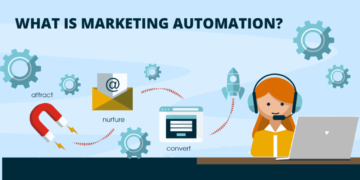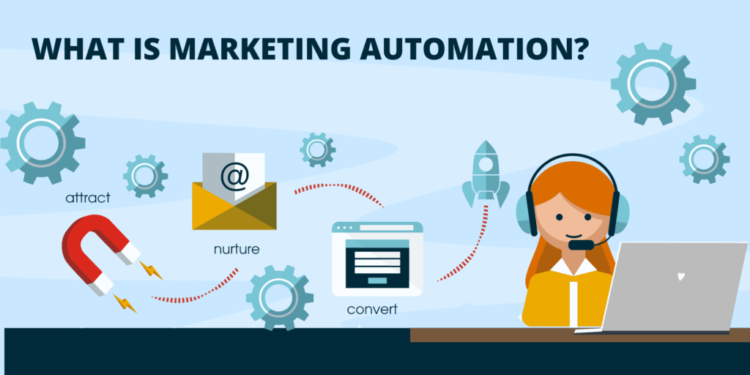In today’s competitive business environment, companies must find efficient ways to generate and nurture leads. Marketing automation has emerged as a game-changing tool, enabling businesses to streamline their processes, improve customer engagement, and drive conversions. But what exactly is marketing automation, and how does it transform the way businesses approach lead generation and nurturing?
What is Marketing Automation?
Before diving into its impact on lead generation and nurturing, let’s answer the question: What is marketing automation?
Marketing automation refers to the use of software to automate repetitive marketing tasks such as email marketing, social media posting, and ad campaigns. It enables marketers to create personalized, data-driven campaigns without manual intervention, helping businesses save time and improve efficiency. More importantly, it allows for continuous communication with prospects and customers at scale, leading to better engagement and higher conversion rates.
The Role of Marketing Automation in Lead Generation
Lead generation is the process of attracting and converting potential customers who have shown interest in your product or service. Traditionally, generating leads involved manual processes like cold calling, networking events, and mass email campaigns. Marketing automation has radically changed this approach.
Here’s how it transforms lead generation:
- Efficient Lead Capture Marketing automation platforms allow businesses to capture leads seamlessly through forms, landing pages, and calls to action. When a potential customer interacts with these elements, their information is automatically stored in the system. This eliminates the need for manual data entry and reduces the risk of missing out on valuable leads.
- Personalized Lead Magnet Campaigns Personalization is key to successful lead generation. Marketing automation enables businesses to segment their audience based on behaviors, demographics, and interests, allowing for highly targeted lead generation campaigns. For instance, by analyzing past interactions, the system can automatically send relevant content or offers to prospects, improving the chances of conversion.
- Automated Lead Scoring Not all leads are created equal, and marketing automation helps businesses identify the most promising ones through lead scoring. The software assigns points to leads based on their actions, such as website visits, email opens, or content downloads. This scoring system allows sales teams to focus their efforts on leads that are more likely to convert, optimizing the sales funnel.
How Marketing Automation Enhances Lead Nurturing
Lead nurturing is the process of building relationships with potential customers who are not yet ready to buy. It involves engaging with leads over time, providing valuable information, and guiding them through the buyer’s journey. With the help of marketing automation, lead nurturing becomes more effective and scalable.
Here’s how marketing automation transforms lead nurturing:
- Timely and Consistent Communication One of the biggest advantages of marketing automation is its ability to deliver timely, consistent messages. Automated email workflows, for example, can be triggered based on specific actions, such as signing up for a newsletter or downloading an eBook. This ensures that leads receive the right content at the right time, keeping them engaged throughout their journey.
- Behavior-Based Triggers Marketing automation allows for behavior-based nurturing, meaning that leads are nurtured based on their interactions with your brand. If a lead visits your pricing page, the system might automatically send them a follow-up email with a case study or offer a free consultation. By responding to actions in real-time, businesses can provide relevant content that addresses the prospect’s immediate needs.
- Multi-Channel Engagement Lead nurturing is not limited to emails alone. Marketing automation tools allow businesses to nurture leads across multiple channels, including social media, SMS, and even paid ads. By leveraging different touchpoints, companies can create a more holistic approach to nurturing, reaching leads wherever they are and guiding them through the sales funnel.
- Lead Nurturing at Scale As businesses grow, managing a large volume of leads manually can become overwhelming. Marketing automation solves this by enabling companies to nurture thousands of leads simultaneously, without losing the personal touch. Automated workflows allow for segmentation and customization, ensuring that each lead receives relevant content based on their unique journey.
Benefits of Using Marketing Automation for Lead Generation and Nurturing
- Improved Lead Conversion Rates By delivering personalized, relevant content and engaging with leads based on their actions, marketing automation significantly increases conversion rates. Automated lead scoring ensures that sales teams focus on high-quality leads, while nurturing programs keep potential buyers engaged until they are ready to purchase.
- Time and Resource Efficiency Marketing automation eliminates many manual tasks, allowing marketing teams to focus on more strategic initiatives. Automation also reduces the margin for human error and ensures that leads are followed up on promptly, maximizing every opportunity for conversion.
- Data-Driven Decision Making Marketing automation platforms provide valuable data and insights into lead behavior. Marketers can track which campaigns are driving the most engagement, identify bottlenecks in the sales funnel, and make data-driven decisions to improve overall performance.
- Enhanced Customer Experience Marketing automation enables businesses to provide a seamless, personalized experience for each lead. By delivering the right content at the right time, companies can build stronger relationships with potential customers, ultimately leading to higher customer satisfaction and loyalty.
Conclusion
Marketing automation has revolutionized the way businesses approach lead generation and nurturing. By automating processes, delivering personalized content, and engaging with leads across multiple channels, companies can drive higher conversions and build stronger relationships with potential customers. Understanding what is marketing automation and implementing it effectively can significantly transform your business’s lead management strategies, resulting in more qualified leads and faster sales cycles.























































